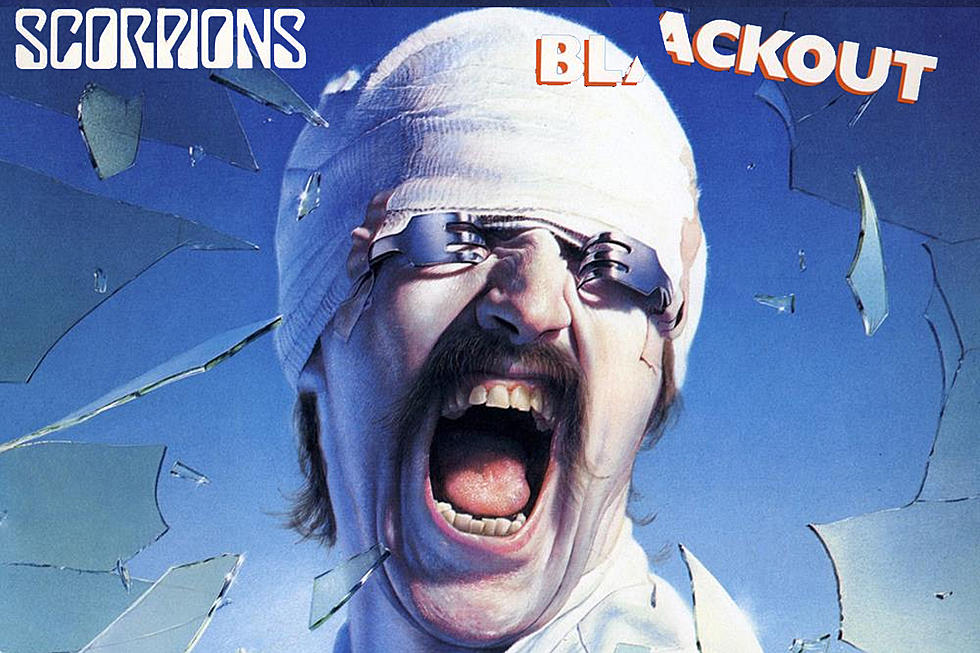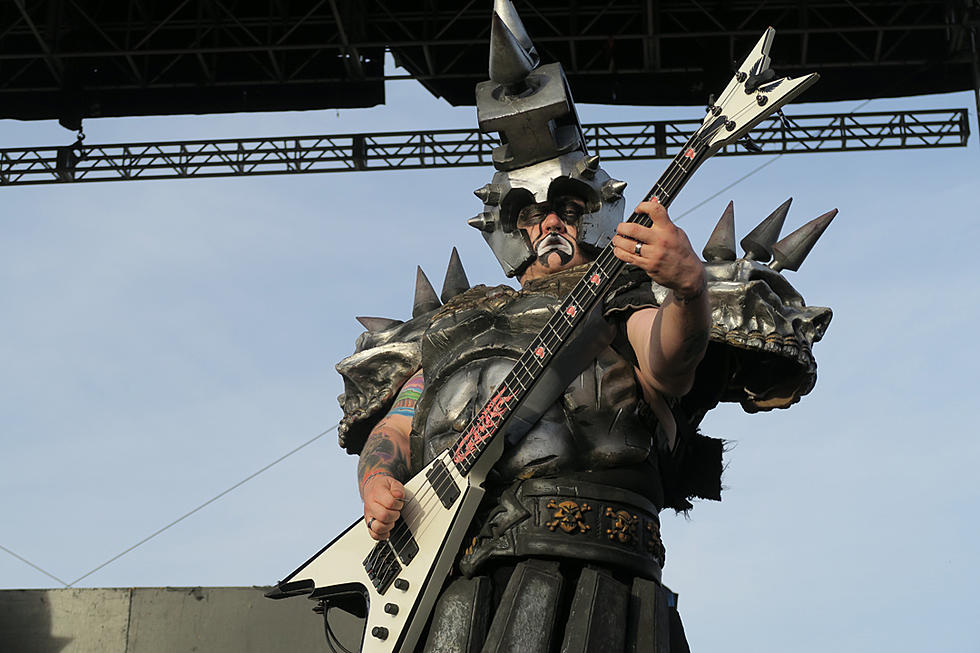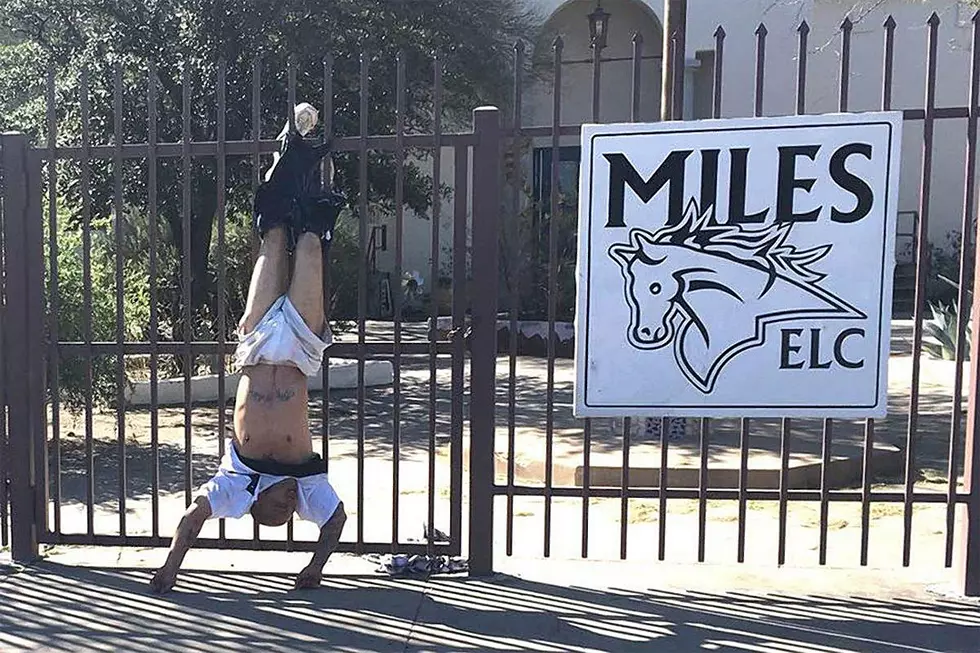
Why Scorpions Initially Struggled on Breakthrough Album ‘Blackout’
Scorpions entered the early '80s poised for their worldwide breakthrough — but they came uncomfortably close to losing their singer in the bargain.
As the band prepared to work on their eighth studio LP in 1981, all the incessant touring and recording they'd put themselves through over the preceding decade appeared to be finally paying off. Scorpions had finally cracked the charts in the U.S. with 1979's Lovedrive, and they inched a few notches higher with Animal Magnetism the following year.
With the market primed for more Scorpions, they just needed to deliver, and they were ready on the songwriting front. Vocally, however, singer Klaus Meine was a mess.
"I think the heavy touring and studio schedule finally got me. My voice was in bad shape. I couldn’t sing and I thought my career was over," Meine told Noisecreep. "I couldn’t sing. It was that simple."
Forced to seek surgery for the problem, Meine was out of commission for months. Meanwhile, Scorpions continued to put together demos — many written by their ailing singer — for a new LP. The tracking process started relatively late in Meine's recovery period, but there was still a period during which he was unable to sing – so in order to get the songs together, they reached out to a young Don Dokken.
At the time touring with an early version of his eponymous band, Dokken was recommended as a potential fill-in who could approximate Meine's range, and he ended up pinch-hitting for a period with the rest of the group while the Scorpions frontman rested.
"He recorded some of the songs with them," Meine later explained. "I had some surgeries done and rested my voice for about six months or something. When I finally came back, I was in really good shape. I even did the high-pitched backing vocals like I did on the older records."
Watch Scorpions Perform 'No One Like You'
It took a lot to get Blackout finished, but the LP proved well worth the effort after arriving in stores on March 29, 1982. Scorpions had their biggest global seller by a wide margin.
Buoyed by the huge rock radio hit "No One Like You," Blackout charted in countries where they'd previously had no success while achieving new heights in parts of the world where they'd already established a toehold. In the U.S., Scorpions scored their first Top 10 hit and platinum LP.
That marked the start of a whirlwind decade, one that became even more intense after the release of Scorpions' next effort, 1984's hugely popular Love at First Sting. By the time the '90s dawned, Scorpions were firmly entrenched as a global hard-rock phenomenon.
For a lot of U.S. fans, it all started with Blackout — the record on which, if things had turned out a little differently for Meine, the band might have gone in a different direction. Looking back years later, it's tempting to wonder what might have been.
Still, Dokken insists he never thought of his time with Scorpions as potentially leading to anything else — not only because he was a fan, but because he would have had such a hard time carrying Meine's vocal load.
"Even if they had asked me to replace him, I would have said 'Are you crazy?'" Dokken later told Metal Rules. "If they asked me to sing in Scorpions, which would be a dream, I would say no because you can’t have Scorpions without Klaus.
"I just went in and sang a couple lines — and trust me, they killed me," Dokken added. "They kept telling me to sing higher and higher. After eight hours of work, it just sounded like buzzing."
Scorpions Albums Ranked
More From 96.3 The Blaze









